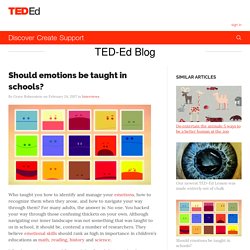

You're not going to believe what I'm about to tell you. Comics Blog Books Shop Comics: Random Most Popular All Cats Grammar Food Animals Tech This is a comic about the backfire effect.

Inspiration This comic was inspired by this three-part series on the backfire effect from the You Are Not So Smart Podcast. USC Creativity and Brain Institute. R. Luke DuBois: Insightful human portraits made from data. How to beat loneliness. Loneliness is a subjective feeling.

You may be surrounded by other people, friends, family, workmates — yet still feel emotionally or socially disconnected from those around you. Other people are not guaranteed to shield us against the raw emotional pain that loneliness inflicts. But raw emotional pain is only the beginning of the damage loneliness can cause. It has a huge impact on our physical health as well. Loneliness activates our physical and psychological stress responses and suppresses the function of our immune systems. Goalcast - The story of a boy who wore three T-shirts... We live in a time where we quickly put... - Thinking Humanity.
Practicing The Subtle Art Of Detachment – Personal Growth – Medium. From everything that I recall about my life so far, I can say one thing with absolute certainty.

I have been an extremely passionate person. Passionate about everything. Be it life in general, work, friendships, relationships. Bustling with energy, I have always liked to give my heart, my soul, my mind and my energy completely into things that matter to me. Confirmation Bias: Your Brain is So Judgmental. Heidi Grant Halvorson: So there are lots of biases that you can basically count on your perceiver being subject to.

They’re going to interfere with the way this person sees you. The first and probably the most common is the confirmation bias. So confirmation bias is the brain’s tendency to once you start to kind of go get a sense of what someone is like, so you show in an initial interaction you start to feel like this is a funny person or this is a smart person or this is someone I can trust. And once you start to have that initial hunch your brain naturally looks for information that confirms that initial hunch and kind of ignores everything else. The Personality Traits of Good Negotiators. Executive Summary Personality research provides valuable lessons in predicting an individual’s ability to negotiate effectively.

Some traits are clearly indicative of good negotiation potential, while others are more of a handicap. Among the traits that improve individuals’ negotiation abilities, emotional intelligence (EQ) is in a league of its own. People with higher EQ are more likely to induce positive mood states in their negotiation counterparts and leave them more satisfied with the outcome of the negotiation. Another trait that has shown a strong association with negotiation potential is cognitive ability. This Emotional Intelligence Test Was So Accurate It Was Creepy. Lioness discovers that deer she ate was pregnant, what she does next is incredible.
June 20, 2017.

Power Causes Brain Damage - The Atlantic. But tornadoes, volcanoes, and tsunamis aren’t the only hubris-restraining forces out there.

PepsiCo CEO and Chairman Indra Nooyi sometimes tells the story of the day she got the news of her appointment to the company’s board, in 2001. Researchers Believe Depression Once Offered Humans an Evolutionary Advantage. Around 15 million US adults suffer from depression. 6.9 million American adolescents have been diagnosed.

The condition is common. 10% of the population may suffer from significant depression sometime in their life. While 30-50% of folks are bound to feel some sort of depressive symptoms at some point. This isn’t relegated to the West. Depressive symptoms have been found in every culture on Earth and throughout history, though at one time it was called melancholia. Unlike other psychiatric disorders, which are rare, depression is fairly common.
Should emotions be taught in schools? Who taught you how to identify and manage your emotions, how to recognize them when they arose, and how to navigate your way through them?

For many adults, the answer is: No one. You hacked your way through those confusing thickets on your own. Although navigating our inner landscape was not something that was taught to us in school, it should be, contend a number of researchers. They believe emotional skills should rank as high in importance in children’s educations as math, reading, history and science. Why do emotions matter? Kids are often taught to ignore or cover over their emotions. How does one go about teaching emotions? As a strategy, children are taught to focus on the underlying theme of an emotion rather than getting lost in trying to define it. Should emotions be taught in schools? Developing Emotional Intelligence. Autism Games: Social Skills Activities for Children and Teens. Calm and Confidence Will Slay the Toxic People in Your Life. According to psychologist Margarita Tartakovsky, the best way to overcome the toxic influence of overly critical people is to disassociate with them.

Of course, this isn't always a possibility; these folks tend to be in positions we can't simply avoid. They're our bosses, parents, co-workers, family, etc. How to Remain Calm With People. The Girl Who Couldn't Cry - Water is Life. AIB: When India Spoke to Pakistan.